.
.
An invitation was extended recently to poets to submit work that reflects this time of COVID, Black Lives Matter, and a heated political season. In this third volume, 33 poets contribute…
.
Featuring the art of Vakseen
.
(You can read Volume 1 by clicking here, and Volume 2 by clicking here)
.
.
___
.
.
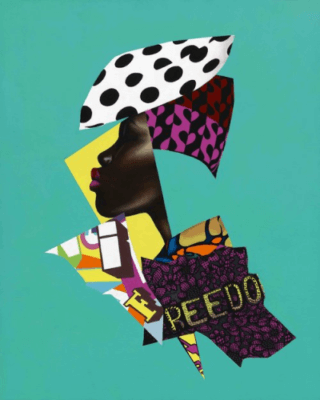
“Dreams of Freedom” is by the Los Angeles-based artist Vakseen. With his gracious consent, his art appears throughout this collection.
.
.
___
.
.
Autumn Song
swaying from a wintry branch,
one final golden leaf–
all beauty contains grief.
.
by Michael L. Newell
.
___
.
The Clock Is Ticking
We tumble through the universe
Aboard this rock called planet Earth
Billions of years in the making
A job well done for what its’s worth
Yet humans are a funny breed
Seems all we know is how to kill
Divided over right and wrong
The time will come to pay the bill
Mother Earth now hot and bothered
While those in charge seem not to care
Extinctions now by leaps and bounds
More than my soul can truly bear
While Eden slowly starts to drown
We all sit back and watch T.V.
No need to worry some may say
Our grandchildren will disagree
There still is time to slow things down
A way to keep the wolves at bay
Repair the damage we have done
If not I’ll see you judgment day
.
by Joe Stellin, Jr.
.
___
.
Afro-ism
So he is an Afro-American but not on the run
for having gunned down your new-born son.
He was born to a father and also mum
with a head and limbs and a capable tongue.
In films he was made to play the villain
to perpetuate a law of a hereditary essence
formulated by racists and segregationists
that every colored person is a threatening menace.
And Hattie McDaniel, his distant cousin,
repeatedly cast as a domestic servant,
had won an Oscar but sat at a distance
and was indeed a credit to Afro-ism.
His ancestral drumbeats had inspired rhythms.
The word Afro resonates with heroisms.
He is still striving for neo-abolitions
of stereotyping and racial schisms.
.
by Susie Gharib
.
___
.
A Deplorable In The White House Circa 2019
He without insight, knowledge,
compassion, Neo-Nazis, shouting
his name and we will not be replaced
Send DACA back to Mexico
even if they know no other home
Asylum seekers children in cages
Because they are Brown
Muslims, our own, declared the enemy
Knowing nothing of the Quran, liars
proclaim they want Sharia Law
they want to be left alone to live
in this promised land, Native Americans
prosecuted for protecting their Tribal rights
Everything has been stolen from them
Black unarmed men, boys, and women
Shot in the back or strangled with a
chokehold by those who are supposed
to protect and serve, a form of genocide
We’re not going to let this ride
.
by Aurora M. Lewis
.
.
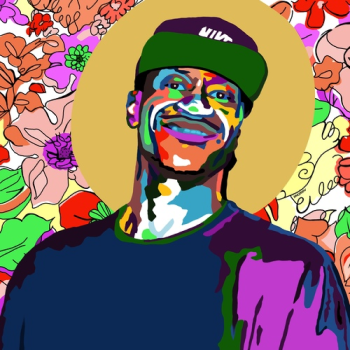
“Remember Me: George Floyd” by Vakseen
.
.
How Much Is A Black Man’s Life Worth?
How much is
a Black man’s
life worth
in the United States
Especially when
White men
can create at anytime
lies about who and what
we are?
How much is
a Black man’s
breath worth
when even in the streets
of his own neighborhood,
he is seen as being up
to no good?
How much does
a Black man’s
existence cost
after his life is lost?
Is his soul even worth
the ten minute segment
on the national news,
after millions of us start
again singing the blues?
How much is a
Black man’s body worth
dead in the street; lifeless;
unconscious; defeated; deleted;
executed; by ruthless
White men who can get away
with anything they feel at will?
How much is a
Black son’s life worth
when his mother arrives
at the mortuary, and the Ancestors
call him back home?
How much more tragedy
needs to be shown regarding
the lives of Black men
before this madness comes
to an end?
How much are we worth
to white allies, accomplices,
justice groups, activists and organizers
when another fallen Black male’s name
causes us more outrage and pain?!
How much is a
dead Black man worth
to the authorities
who have failed to protect us,
consistently neglected us,
and have also stereotyped
and profiled us?
How much is
a Black man’s life worth
in the United States
when this country’s legacy
is Black death and hate?!
………………………….Written for Ahmaud Arbery. May he rest in deep peace.
.
by Christopher D. Sims
.
___
.
They Still Don’t Get It
Even with protesters
still in the streets
it’s open season
Police continue
to pick them off
like game
in the woods
Sean Monterrosa
in Vallejo, California,
on his knees
arms in the air
Rayshard Brookes
in Atlanta,
two bullets
into his back
and then, the gun
still hot,
the cop kicks him
just for fun
.
by Phyllis Wax
.
___
.
Derelict Racists
They don’t care who
you bring home for dinner,
but there are homes
they will not enter.
They won’t protest the
changing complexion
of their neighborhood,
but they won’t step outside
to fight for change.
They’ll never believe
all black men are criminals,
but the ones killed by
police surely are.
They don’t care about
the color of your skin
in the worst possible way:
as if color had no history
no context,
no imbedded debts.
.
by Michael Yellin
.
___
.
Do We Care?
No one cares
if a black, kindly neighbor
goes to the neighborhood bodega
& ends up dead
No one cares
if a woman, clad in a tight miniskirt,
gets fondled, fingered or raped
without her consent;
she was probably asking for it—
No one cares
when Asians get harassed
or spat upon in the subway:
they’re the carriers of disease.
No one cares
if Native Americans lose
another acre of land
to big corporations fracking & pipelining
No one cares
about the illegals:
they should remain at the border,
penned up like animals
No one cares
about sexual deviants.
Why should they marry each other & raise kids?
Why should they want to change their gender?
& no one gives a damn
about the children:
when their parents die,
when injustice wins—
Wait a minute:
Everyone cares!
That’s why they’re marching,
Mr. President—
They do give a damn!
Not everyone’s apathetic;
that’s why
they’re taking it to the streets!
Not everyone
are looters or criminals
or rebel-rousers;
they don’t need to
wave their Bibles—
Enough is enough.
Even those staying at home
are with the protesters.
That’s why we chose
not to tune in to your speech
on television yesterday;
you want to change America
into a military task force state.
That is not our America.
We don’t care for that.
Black lives matter.
Women’s lives matter.
Asian lives matter.
Native American lives matter.
Latino & Hispanic lives matter.
LGBTQIA lives matter.
Children’s futures matter.
We all matter—
we’re still alive & kicking
& we don’t care
to be considered
as criminals
in America,
no more!
.
by Carrie Magness Radna
.
.
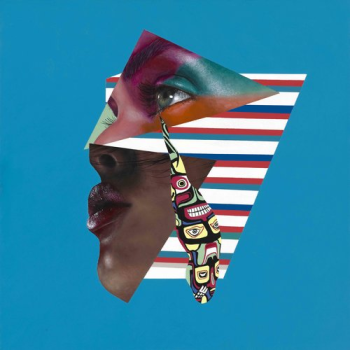
“Losing Faith in My Idols” by Vakseen
.
.
America The ?
The spirit of the land
is in the spirit of the people
and the alley slum
and the highest steeple;
And the smallest tree
and the thickest forest
reaching for air
as though begging for it;
And angry people
wanting their say
not thinking of tomorrow
only today;
And empty beer cans
out in the street
where people pass
but never meet;
And then the rest
who can’t agree
acting like it –
but not really free.
.
by Robert Harris
.
___
.
God Surveys The Ohio Valley During The Pandemic
Here
His love is industrial
His coal trains
forever beating the rails in Conway
His rolling mills
His stamping plants
and here
no one notices
the noise
His metal on metal fixation
His shift whistles
until they are gone
like jazz
or His coal shovels
His pay phones
His telephone operators
spread like candy
along the Ohio River
where each town asks
for grass
for dandelions
for flowers
for sunlight
on the way to Pittsburgh
and the calls go unanswered
that’s what most people remember
His spitting sky
His dusty sacred heart
His virus like a stump dug up
.
by John Stupp
.
___
.
It Takes A Pandemic
Counting sirens
nightly
Sleepless
Dreams
counting bodies
1,000 jigsaws
Puzzling over Van Gogh’s
“Irises”
Illusions in
Time eluded
Procrastinating
An eviction.
.
by Susan Yang
.
___
.
Corona 2: A Walk In The Abington Cemetery
The start of Spring
and the ground
has softened,
making it easier
for those who
earn their living
digging graves
for those lost
to this plague.
Abandoning isolation.
we wander
the curving paths,
stopping to read
names, dates
carved on stones
that cast dark shadows
across rows populated
by invisible people.
In this midst of fear
and sorrow, there seems
to be no end to pain
and I find myself
confessing yesterday’s sins
to the sky, to the breeze,
to the budding trees
that hover over and soon
will bring shade to this place.
.
by Russell duPont
.
___
.
Accidently Pulled Under, By The Undertow
…………………………………..For Jim Burton And John Emerline
just today, I read
…………..in my high school newsletter,
that two 1965 classmates
…………..and friends from kirkwood high:
jim burton
…………..and john emerline
were pulled under
…………..by the undertow.
it was off of the beach
…………..near emerald isle, north carolina.
the day was sunday
………….. july 12, 2020.
…………..*****
it seems enough, in this year
…………..and in these times
to worry about dying
…………..from the virus.
then there is also the constant
…………..and continuing … undercurrent of worry
about accidently contracting, and then
…………..succumbing to the virus.
…………..*****
at the extreme very least
…………..for my two
high school friends
…………..could thus be said:
“he who
…………..dies today
does not
…………..have to worry
about tomorrow.”
………….. william shakespeare.
.
by Alan Yount
.
___
.
………………….Pandemic
……….Who would have guessed
…………………..A year ago
…………That black robed Death
Would turn red and stalk our land.
…Wash your hands every hour,
…Stay inside, and wear a mask
………When you venture out.
………………..You hope
…That all your friends are safe
And that Death will not approach
……………..Them or you.
….But we can all pray to God,
……..Whose will is perfect,
……..That He will shield us
……….Or, if it is His will,
…………..Take us home.
.
by Emory Jones
.
___
.
……………………A Corona Of Fear
………………………………..1
……………….dystopian fever dreams
……………………..tasteless hunger
…………stabbing shards of netflix light
…………………..throbbing vision
………………solitude in purgatory
…………gut shot exit wound coughing
…………..hour hands move in reverse
……………..no forgiveness necessary
……………if i am alive give me peace
………………………………..2
…………Over the phone the doctor says
………………….take her to the ER
…………………..so they take her
…………….drop her off at the door
PATIENTS AND EMERGENCY PERSONNEL
…………………………….ONLY
……………..She stands before the desk
………………Behind the red line please
…………………answering questions
………………..weakness and nausea
…………..trembling through her body
………………..I have the coronavirus
……………………she says teetering
…………………I am a cancer survivor
…………………..Have you been tested
……………………..My doctor says
………………I have all the symptoms
………..and I am immune compromised
…………………….We’ll take a look
……………………May I lie down
…………First we have more questions
They put a wheelchair behind the red line
………………………………3
…………………..I sit on my bed
…………….fever sweat glistening
…………..seared face in my hands
..staring at the carpet between my feet
………………suddenly realizing
……………….what gone means
………………They can keep her
…………………….no visitors
………………………..alone
………………a ventilator mask
……………………..squeezing
…………….her bewildered face
………………blue eyes flashing
………………..no hand to hold
……………………….alone
………………..solitude in Hell
…………………..my beloved
…………….When can I see her
……………………Oh God
………..when will I see her again
.
by Bob Walters
.
___
.
Moonlight Serenade
Charlie was in bed,
tubes attached to his body,
listened to cartoons
on a nineteen-inch screen,
thought of Sophia,
his“ Belle of Flatbush.”
When la luna was full,
Charlie used to sing
Moonlight Serenade
outside Sophia’s gate.
They’d slow-dance
to Glenn Miller’s rendition.
He’d relax his rhythm,
hold Sophia closer,
recall how safe she felt.
Her soft brown curls
would drape on his shoulder—
her smoky eyes—
stelle colorate, tinted stars
over a make-believe Brooklyn sky.
His protective hold couldn’t save her
from breast cancer twenty years ago,
their two sons from Viet Nam’s death call,
or their daughter from her husband’s fists.
A massive stroke took Sonny,
his last living friend.
His relatives were either dead
or couldn’t care less.
Charlie was in bed,
tubes attached to his body,
alone—except for routine visits from
the nursing home staff,
wondered if Sophia would be there for him
when he leaves for the morgue.
He hummed Moonlight Serenade,
but a dry cough cut his tune short.
Sadness, age, and high fever
drained his cognition and will to live.
His memory was of the past,
not the present.
He prayed for Death’s visit—
Death would wear a white coat,
walk past the rooms,
make decisions on who’s to come
and who’s to stay.
But Death forgot about him—
perhaps Death’s eyesight was fading
when he came by last week,
took Hector instead.
Tina, his favorite nurse,
no longer visited him—
was in critical condition
due to a new virus going around.
He closed his eyes,
Saw Glenn Miller and his band
Perform Moonlight Serenade
at the Waldorf Astoria.
Everything was in Technicolor.
Sophia,
radiant and youthful,
rose from her table.
She came closer,
her smoky eyes—
stelle colorate, tinted stars
over a make-believe Brooklyn sky.
By the entrance,
a man in a white coat
checked his clipboard,
greeted Charlie with a smile
and opened the gate.
………………………….(published in The Alien Buddha Contracts Covid-19 Act 6: Essential Work, Alien Buddha Press, April 22, 2020 and in What Rough Beast COVID-19 Edition, Indolent Books, May 15, 2020)
.
by Patricia Carragon
.
___
.
Corona 1
My wife,
with a bag of Cape Cod chips,
two bottles of Kefir, two of milk
and some laundry detergent
in her cart, stands at the rear of
a line that extends from
the front of Market Basket,
up the frozen food aisle
and along the rear of the store,
between the cases of beef,
chicken and pork, ending
in front of the fish
and Deli counters.
I wander, bewildered
at the vacant shelves;
at the worried faces
of shoppers whose
carts are heaped
with packs of toilet paper,
cases of water — and watch
one man, frantic in his motions,
fill his cart to the top
with every two-liter bottle
of Coca Cola.
.
by Russell duPont
.
.

“Remember Me: Breonna Taylor” by Vakseen
.
.
On The Backs Of Black People
On the
Backs of
Black people
The United States
was formed, was
transformed into
a global powerhouse.
On the
Backs of
Black people
especially in the south
the United States has
achieved the impossible;
has used Black blues and
gospel to galvanize a
greatness only witnessed
in modern times
this wretched country
shines on the backs of
Black people.
On the strong shoulders
of the daughters and sons
of the African diaspora
this country has breathed
life into economic systems;
has made endless monies
off of Black women, men.
children in its many jails,
prisons.
On the
Backs of
Black people
This sick country
has launched evil
campaigns; has stained
it’s name in the process,
has created one big mess
it won’t ever be blessed
because of what it considers
success!
On the strong shoulders
of Black people the US
has eliminated the progress
of so many others; won’t ever
understand the term “we are
sisters, we are brothers.”
On the
Backs of
Black people
this country continues
to lie; to not speak truths;
to remain in cahoots with
dictators, life-takers, racists,
bigots, sexists, haters, denigrators
will lie in bed with anyone
that will do it economic favors.
On the
backs of
Black people
is where the
United States
has been too
long
is where she
finds her home
is where she
has always done
wrong
Is where she
will continue
to write history
but never scribe
her own songs.
On the
Backs of
Black people
America you
have never
belonged!
.
by Christopher D. Sims
.
___
.
Excerpt To Liberation
From the sea of discarded forgotten flesh
Wash ancient bones in restless tides
Adrift they slam asphyxiated shores
Chain gangs of salt and marrow
Churn ghosts of Huron, Erie, Africa
Who put to wind their chorus hymns
Shanties of collective memory
Their melodies a dissonant ring
In the ear of the tone deaf nation
Our haunting odes of resurrection
Disturb the malady system
Shock its morbid composure
Our tremors unsettle
The gravity of machines
Summoned from the eternal quarters of our souls
Silt of fallen ancients
Stir through you in flesh, in spirit
Calling you take your freedom
You are tomorrow coming
Coming, coming, today
It is time
…………………(from We Want Everything, Onslaught press)
.
by Moe Seager
.
___
.
Fourteen Days
In this mercurial age of covid-19,
we diligently don our masks, and gloves,
standing at least, six feet apart
from our nearest neighbor.
We have become so disconnected
as a society; there is rarely any
communication or interaction with strangers.
We avoid making eye contact, or even a smiling
gesture; for how can one be expected to smile
when we’re forced to wear
these annoying masks,
covering our faces,
barely permitting us to breathe?
We’re so paranoid, and uptight,
each time we come across someone
whose, not wearing a mask,
whose, not adhering to the new social etiquette,
we chastise them for being socially indifferent.
What if they happened to breathe or God forbid,
What if they happened sneeze upon us,
must we cross our fingers, while holding our collective
breath for fourteen days?
Fourteen days……of self-quarantine.
Fourteen days……of loneliness and uncertainty.
Fourteen days……of not knowing the fragile touch
of another human being.
Fourteen days……of painstakingly waiting,
for signs
………………..of change.
Waiting for signs of covid-19.
Waiting for signs of becoming…a zombie.
.
by Prince McNally
.
___
.
Lock Down
Emptiness is a shallow grave
with charcoal remains
Emptiness is an open road
in the middle of the day
Emptiness is the quiet
in the eye of the storm
Fairness is a guarantee
you will be heard and seen
Emptiness is the sky
after the cherry blossoms
are all gone
Emptiness is the battle field
after the horses have withdrawn
Emptiness is the feeling
of being awake far too long
Assurance is the sun rising
behind clouds at dawn
Emptiness is a boat
somewhere in the fog
Emptiness is the computer screen
with its voice talking back at you
Emptiness is the slamming door
staying shut
Perseverance is a snow topped mountain
somewhere in the sun
.
by D.H. Jenkins
.
___
.
.
Colorado Covid Blues
The sky’s been painted Solitude:
gray, with a single drop of blue.
Mineral, Quebec: the names of streets
blare by in artificial blue.
The weight of snow buckles branches;
even evergreens have the blues.
Head down, she tromps the rock-strewn path,
then, the flit and pulse of three bluebirds.
Lone cyclists, runners, walkers, workers—
today our very breath blows blue.
The Rockies keep their measured distance,
sighing variegated shades of blue.
Weeks blur. A poet longs for winter
when the clean, cold breezes blew.
…………………originally appeared in The Colorado Sun
.
by Susan Delaney Spear
.
___
.
Our Shady Of Perpetual Teflon
I campaign myself brave as a gutsy
insurgent slurred by nonstop gusts of true
lies, a noncomplicitly self-sufficed
device. I feint to elude photographs
of my skeletons, the precision of
peepholes rarely sustained. Metallic ap-
petites jangling, shawled fangs don’t slit me, I
feign to say, since that muck fizzles quickly
as sermons after Sunday. To sue who
yelps of my clutches is my stock M.O.
.
by D.R. James
.
___
.
The Woman In Michigan
The Woman in Michigan is not a film
that would be made today. It cries out
for Barbara Stanwyck, Irene Dunne,
or maybe Bette Davis. She’s a career girl,
or perhaps a loyal wife who stays
in the background, desiring no credit
for her efforts to save her family.
Or maybe she’s a bit ditzy, and wreaks havoc
wherever she goes, yet everyone adores her
because she has big bright eyes and a quick wit.
Times have changed, yet today’s Woman
in Michigan does resemble a Golden Age star,
with her angled facial structure, red lips,
and rich, wavy brown hair.
The movie, though, is grim; it tells the story
of a nasty woman who refused to beg
properly as she watched her people die.
Several endings have been written:
Now Hollywood must decide
if The Woman gets put in her place,
or if she becomes an action figure.
Meanwhile, people are dying
to know how the story ends.
…………………(originally published, in somewhat different form, in Poetry Super Highway)
.
by Diane Elayne Dees
.
___
.
MT Phone Home
For some odd reason
I was thinking about his sphinx-like wife today
…….and I laughed because
…………….it suddenly occurred to me
……………………that few people in the world
………want Donald to lose
……………………in November
more than she does…
She was a fabulously rich celebrity
……………………………with servants,
………drivers,
and elegant everything at her fingertips
………………………………in Manhattan:
The world was her oyster…
And now?
Stuck in Washington, D.C.
…….in the White House
……………..with him
his revolving cast of circus clowns
…….and a bunch of made-of-wood
………………………………Secret
………………………………..Service
………………………………….Agents
……….surrounding her always
Poor Melania wants to go home…
.
by Bob Walters
.
.
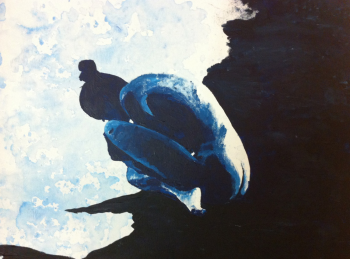
“Please Love Me” by Vakseen
.
.
Lily Was Here
Nobody wants to listen to what is being told.
I sit among people who simultaneously talk,
each mouth ejecting torrents of words
to which my head rotates in incoherent nods,
my pupils, a disarray of distracted looks,
my mouth, half-open with surplus of discourse,
half-comprehending, semi-grasping their outbursts of self-importance.
Nobody wants to listen to that which enthralls.
Everyone is enamored with one’s exhausted voice
that with incessant chattering has grown immeasurably hoarse.
When discordant grows what is verbose,
my mind retrieves an archive of jazzy saxophones,
of Candy Dulfer’s conversing with the strings of David A. Stewart
in Lily Was Here, a wordless intercourse.
.
by Susie Gharib
.
___
.
Shades Of Darwinism
This, is Jeopardy!
For the game, Alex, I’ll take
what is the new apocalypse?
Perhaps, this is natures’ way of restating,
reclaiming what’s hers.
Perhaps she’s reminding us
of our own impermanence and fragility.
For we are all born to die, there’s no
partiality here.
The corona virus doesn’t care about
your race or your financial status:
black, white, rich or poor.
It doesn’t care about your political
affiliation:
Democrat, Independent or Republican.
It doesn’t care about your sexual
Orientation or religion:
Gay, Straight, Bisexual, Trans,
Buddhist, Jewish, Catholic or Muslim.
Covid-19 is the greatest threat
to man’s quest for immortality.
Welcome to the new reality,
the new standard of living.
Welcome to the culture
Of social distancing.
If only we could distance ourselves
from this world disaster, this menacing
scourge of impending doom.
If only we could distance ourselves from
the fear of the unknown, of being left alone
with the shadows of our depression, and anxiety.
If only we could distance ourselves
from mourning a carefree way of life,
we so foolishly took for granted and may
never see again.
If only we could distance ourselves
from the pre-eminent fear of man’s
extinction; for gone, are the days
of our presumed innocence,
and sordid discontent.
Welcome to the new normal:
of donning masks in public,
standing six feet apart,
and washing our hands,
washing our hands,
washing our hands
over and over and over again
as the President washes his filthy hands
of any knowledge or culpability.
Conspiracy Theory?
What are the implications?
Shades of Darwinism.
Is Covid-19 a product of evolution
or man-made manipulation?
So many questions.
As opposed to addressing the global
impact, the President was far more
concerned with financial set-backs,
political fall-out, and corporation bail-outs.
What of the poor, the elderly and the homeless?
What of the psychological effects upon society
As a whole?
What of this beloved planet?
We’re in a state of panic!
World-wide pandemic!
Infected vs non-infected.
Whose positive? / Whose negative?
Isn’t it so ironic, how we’re all
interconnected, and yet, to survive,
we must all remain…separate.
.
by Prince McNally
.
___
.
Climate Change 11
What if the virus came to our city
to the rivers
the hills
and the grass
what if the workers
were not allowed to mine perfectly good coal
not allowed to dig it up
and what if the junkies were not allowed to dig up
their pills
what if the virus came to our city
and for days no one could remember the sea
and its voices
waiting to take over
and what if it was almost beautiful
.
by John Stupp
.
___
.
I Like To Think Of Corona
I like to think of Corona
as Paul Revere’s bugle,
laughing at us, a fugal
reminder of what we choose to ignore
at our peril. Imagine, if you will,
Climate Change as a virus
we wake up to like meerkats, as one,
alert, ready, filled with protocols,
the Press on it, every story angled,
the world in kumbaya lock-down,
each of us quarantined against each other,
in self-isolation, mobilized
to be immobile, pretty much
like any other day, but now
the message is the massage,
and, if you thought about it,
we are keened to defend our turf.
I like to think of Corona
as a collective unconscious archetype
come roaring to life like
the Notre Dame forest fire with no insurance,
the gold-dipped crown of thorns rescued by the 1%,
and bringing clarity everywhere,
and when you think about it, if you do,
we’re blessed hosts to a thousand viruses, and
bacteria up the yin-yang,
eaten alive by time in a kind of trans
-substantiation and -migration
of cellular souls, always
in circulation, please, sir,
I want some more.
I like to think of Corona
as a terrestrial soul,
which is more than you can say for us,
if science is right and
we came from outer space, giant
viruses ourselves, kick-starting evolution,
neither alive nor not-alive catalysts
for membranes, and our brains, too,
science says, are viral emanations —
frisson je nais se quoi
lit-up Gauloisse-smoking jellyfish
that have no real place on Earth,
(or Paris for that matter)
and Corona knows it.
I like to think of Corona
when I watch old films like The Blob
that warn us of something —
herpes, Reds, the aliens in us all;
and The Andromeda Strain, where science says
humans are skid marks in the skivvies of the cosmos, and
The Matrix, where Agent Smith calls us out,
and the Twilight Zone “Cookbook” episode. It’s not like
we didn’t have fair warning,
as Corona established her dominion
like a virus within a virus
and wiped that smirk away
from the pussy-grabber’s face.
.
by John K. Hawkins
.
___
.
Constrictor
Just hold me for a while,
I beg with my eyes—
I know we shouldn’t touch,
but we are not infected;
too informed by the shit-storm—
our lives made smaller,
we mush indoors, waiting
to come out for a while
& the invisible boa constrictor
waits patiently for
any known weaknesses
that shakes us to
our precious cores,
that corresponds to
needs of the flesh & brains & heart,
it tightens its grip
without warning; its malice
flashes brightly for a few seconds,
before the fog grows thicker,
blaming the destruction
of the current human condition
upon a complex pathogen—
anxiety is like a snake,
squeezing tighter each minute
we are spellbound—
.
by Carrie Magness Radna
.
___
.
From Outside In
………………………….nuages for the most part
Out for a promenade along Green Dolphin Street
bends & curves notwithstanding
during a Coronavirus excursion
with Kenny Niels-Henning & Phillip
as travel companions when
I commented upon echoes
of Django Jim & Toots
(that famous whistler)
just heard down
from open doors & windows at
random points of intersection
Niels-Henning smiled saying he heard Mr Sam Jones
Trippin’ throughout a stroll
to the sunset harbor at the end of the street
.
by Terrance Underwood
.
___
.
Barefoot Songs For Five-String Banjo
This killer summer slogs along in heavy boots,
but as for me, I have not even worn a pair of socks
inside my holey beat-up walking shoes for months.
Some nights I spend entirely barefooted, sitting
outside on a canvas chair, my ancient bony feet
thumping, inaudible and naked, on the dewy grass
as I pick the same old dozen or so go-to songs
upon the banjo, a mixed bag of old folk tunes
and originals which are as antiquated sounding
as the oldies. I have a couple which are actually
blues and some, with major seventh chords and
assorted ninths, which I pass off as jazz, complete
with laughable scat vocals. These days I sing out,
loud and ugly, just because I can. Most passersby
above the age of twenty keep their social distance,
across the boulevard, but some less discerning
teens say nice things as they walk by the yard,
not put off by my weirdness or musical ineptitude
and on the very best of evenings, the heat gives over,
the wet lawn rises up to meet my gnarly toes, so then
I play on and spoil the peace till the moon is well up
and the mosquitoes are zeroed in on my bare skin.
It seems like something’s always got your number.
Besides, I can’t do Diz on banjo: Oop bop sh’bam
A klook a mop—1946. I was two. Maybe Bela Fleck
could play that one. Not me. I’m going in.
.
by Joel Glickman
.
___
.
Covid-19
Skulking in our path
Claws and teeth exposed
And screeching too loud
for us to hear over
Too big to go around
Too fierce to tame
A powerful stranger
Covid 19
It whispered of world domination
But we couldn’t hear
Wild fires were crackling
Gun shots were ringing out
Hurricanes roaring on shore
And the stock market booming
Simultaneous with cars lining
up for bags of food
It’s a long way back
When you haven’t got a clue
As to where you are now
.
by Susandale
.
___
.
The end
is coming, with the real kindness of a comet.
Unity, thrust on the world, is a star. Toast it with champagne.
I trail the catastrophe, flying high like a wizard in the wind, seeking
this new flu, which swims away from me like a steamer on a
Great Lake. I want to beat it, punch the hell out of it, anything
to make it give up its mission.
I ponder, speculate, surmise, philosophize on my own and
my brethren’s future.
I find I am pulling on a line without a fish on it.
I’m thinking of funerals, undertakers, not doctors, not hospitals.
The mighty spoiler. The kid on a motorbike – heading for a Big
Summer Night? Or a saving crash into the wall of humanity?
Will the Rainmaker come to Kansas in the
middle of a dust-filled day to save us?
I am re-learning how to pray. God help us. Please.
…………………(originally published in The Poet, special COVID-19 issue)
.
by R. Bremner
.
___
.
Night Cab
He’s driving like a black ghost
Coughing every now and then.
There is hydro-alcoholic lotion
in the middle, showing proudly
as if to reassure me
and yet, with a suspicious air
it seems to say: ”that might
not be enough, I’m sorry.” The car
goes on and on, we both sit in silence
separated by a plastic lid between
the driver and the passenger’s seat.
I am the passenger, always have
been. We see people die but it
seems out of reality, as if it came
out from a dream, as if it had been
on another planet; we see the numbers,
we see the extravagant newspapers even
though we try to avoid them. They
rest on the shells like ill-intentioned
Devils grinning.
The cab driver doesn’t say a word;
I wonder if any of this is real…The
man rushes and drives uncertainly
as if he wanted to go Home, wondering if
Home even exists.
We arrive at my hostel safe.
Relieved, I think it is good to
be alive
white as a new-born
Baby, I lose myself
in the sky
While the cicadas, always
hopeful
sing (…)
.
by Claire Andreani
.
.
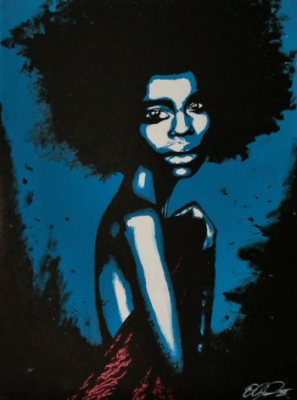
“Morning Glory” by Vakseen
.
.
This Black Woman
I am a Black woman, a spectrum of many hues
resulting from my ancestors stolen from African shores
Black, White, Native American, my DNA is the
Black woman who is me, I am not African American
I am not an immigrant; I know nothing of what country
my family was stolen, my roots are deep in land built
on the backs of Blacks like me, I am not An Other or Less
I am equal, my skin tone a badge of honor for all my
people endured, stop the ignorance and the hate
I’m not going away, it’s time you got used to me
.
by Aurora M. Lewis.
.
___
.
America
A baby torn from mamas arms
Little children locked in cages
You wonder why my fist is clenched
My mind blown, my body rages
Extinction now at rapid speed
A million species dead and gone
As Earth becomes a garbage dump
Not long before the final dawn
The politicians hoard their gold
The only thing they care about
They smile and tell you all is well
No need to yell, no need to pout
If things don’t change before too long
A Dictator will rise and rule
Our freedoms soon will disappear
I don’t intend to play the fool
Now is the time to rise as one
There’s not a moment we can spare
The waters rising to our neck
For freedom we take up the dare
We’ll march and fight until we win
Then maybe set the world on course
Soon allies will come to our aid
And love will be our guiding force
.
by Joe Stellin, Jr.
.
___
.
What Did You Do In The War, Daddy? Redux
If you survive COVID,
if you survive climate change,
if you survive this administration,
late stage capitalism,
the next pandemic,
neo-liberals, neo-fascists,
and the science deniers,
someday a child or grandchild
may look up to you
and with the honest curiosity
of childhood ask:
What did you do in the Second Civil War?
Please, don’t be someone who responds:
I binge watched Game of Thrones.
.
by Ed Werstein
.
.
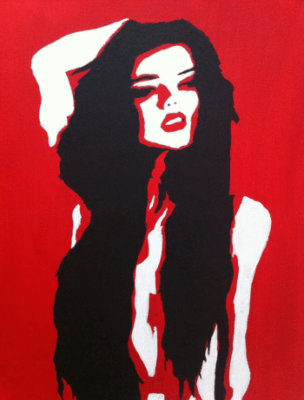
“Masquerade” by Vakseen
.
.
Listening To Music By White Chicks Who Sound Black Under Quarantine
They say soul isn’t about color
It’s about feeling
Tho I admit,
The first time I heard Janis Joplin
I did a double take
As she moaned about being
“Busted flat in Baton
Rouge”
I imagined Janis at the
Greyhound station in my
Hometown
If I saw her
I’d invite her to the
Diner next door to
The City News stand, for
A bowl of seafood
Gumbo
We’d swap gypsy feet stories
And agree that life wasn’t
Meant to be lived standing
Still
As we’d walk down to the
Mississippi River, just the
Way she danced along the
Levee
Would’ve sparked some life
Into that backwater town
II.
Sara Bareilles, you wouldn’t
Have to write me a love song
Just sit at the
Baby grand piano,
Open your angelic mouth
And let the ghost of Aretha
Franklin come out
Let those sequins, hanging
From your stardust dress
Glisten against your legs
Until they give off Sparks
Like fireworks
Open your mouth and be
Brave!
Take your song, and roar like
A proud lioness
Sing your epiphany
Until it makes my spine shake
And my heart stop
Maybe you’ll wake up the
Voice of Janis Joplin
She won’t complain
She may just join you
In a duet…
III.
Amy Winehouse…
It’s been 10 years since you
Went to heaven
But your songs still
Drip with honey and vinegar
They are as lovely as
Your tattoos
I saw a chick with a
Beehive hairdo
At a coffeehouse, near
Northeastern University
I smiled and tipped my ballcap
To her, out of respect
She wore yoga pants
And a lot of Bangles on
Each arm
You would have approved
I imagined you Amy, with your
Guitar, singing
“Will you still love me
Tomorrow?”
As the day turned into
A 60s black and white
Video
I saw another woman
At a coffeehouse in
Brookline, she had
Eyebrows like
Yours
I paid her a compliment
And she thanked me
Maybe if you had married
Better
You wouldn’t have to look
To a bottle of liquor for
Love
Every time I see a woman with
A beehive hairdo
I imagine you still walking
The streets of London
Carrying the spirit of
The sixties in your hips
Making London swing
Maybe you’ll see Janis and
Sara at a pub
Maybe you’ll join them on
Stage and later cackle over
Pints, like women do
IV.
Rickie Lee Jones
Your voice sounds like
A boho poet, like a barfly
That inhaled a lot of secondhand
Smoke
Or spent too much time in
Coffeehouses
If someone looked up the term
Blue eyed soul in a dictionary
Your picture would be next to
It
I may miss quarantine when
It ends
Watching videos on YouTube
Hearing singers raw and unfiltered
In their living room or bedroom
Giving you their soul, piece
By piece
When I was in San Francisco
I heard your CDs and believed
Art could be a cure for all pain
I still believe that music is
Better than any drug
Turn that newsboy hat
Backwards
And belt out a torch song
Have Janis, Sara and
Amy join in, and break it
Down into three part
Harmony
I’ll let myself swim in a
Bottle of Moscato
As you ladies serve up
Heaven in sonic grooves
Show me how poetry
Swings…
.
by Erren Kelly
.
___
.
Morning
How cold is it? one might ask
on a Spring day
during Quarantine.
Whether weather
has ceased to matter
or the division of sunlight,
from exterior sense
to interior view,
we are closed in,
bent upon ourselves,
and neither the times
will straighten nor time now,
with its newly awakened menace,
permit us to get outside.
.
by John Jack Cooper
.
___
.
Harry’s Psalm
In the cold vastness of space without end,
we swirl through time, around the sun,
alone, unknown, unknowable, lonely
collections of stardust, certain we matter,
but vague as to why and how, unable
to prove our value, yet convinced we must
matter, that the matter which forms us
is formed around a ghost within the machine
that is each of us, whether alone or together;
and we pray, we bray like jackasses how unique
we each are, we rant, we rave, we demand
recognition, unable to recognize our connection
to everything else in the known and knowable
universe; we are built from the building blocks
that form all else, but would deny the connection,
seeking connection with the unknowable,
the invisible, the unfathomable, while ignoring
the wonder of our connection with all that exists;
from (star)dust we came, to (star)dust we return,
and we are sister and brother to the glorious beauty
of star, black hole, moon, field, forest, mountain, river,
stream, ocean, plant, insect, mammal, reptile, fish,
and amphibian, as well as the sensuous delight of sound —
bird call, waterfall, wolf howl, symphony, jazz combo,
electric guitar, fiddle, bagpipe, mandolin, bouzouki, sax,
and oud, the roar of ocean’s arrival at shore, the whisper
and murmur of stream, brook, hushed midnight
rainfall, the exhalation of breath as snow falls,
the magnificence of lightning and the wild power of thunder —
all, all, all is each of us, and each of us is all that surrounds us
and abounds throughout all that can be seen and not seen;
yet even with this extraordinary outpouring of which
we are part, we are, in heart and mind, too often alone
and desperate, unwilling to recognize the all that is
in us and the us that is in all we see and imagine.
And all that is tumbles toward the dust which has
formed us all, and calls us back to be reshaped
again and again until there is no longer any stardust
to conjure wild beauty in the midst of the cold void.
.
by Michael L. Newell
.
___
.
The Benefits Of…Having Been, Becoming, Being
Once you have been comatose,
Been handicapped, come home and started life.
There is no pre-supposing.
It’s a door.
You pay attention so much more.
You notice other’s posture,
Belly, maturation, stature.
On yourself and on the other –
And say nothing.
Judgment gone
It’s but to carry on.
All mankind is afflicted.
You are functions and non-functions:
Need to buy a button-hole-der, buttoner (they do exist!)
Set in motion one more ‘trick’ or sleight of hand;
Leave the left, to write with right
Hold the knife without self-wound.
When standing up to feel heel first,
Be wary when foot’s bare, ground’s wet.
Yet, what you notice even more’s, the gifted
And the giving, all the love around,
The boundless care
When your own hair is falling.
People are so kind,
So hard defined.
As for every passing day.
Creative in its way,
With pandemonium’s pandemic,
You now frolic in the kitchen,
Train and try new, fewer gimmicks,
Mimicry from TV inspiration one’s own new found brick.
Oh, the things you learn from having been.
Most of all, that you remain.
.
by Arlene Corwin
.
___
.
The Weight
Walking up Market Street in the rain toward the falls,
street signs all facing wrong as though turned by the wind,
I watch an old woman a block ahead lugging a cart,
water streaming so fast it flows past the pitted sewer grate,
a soaked paper bag wrapping my ankle in a sudden gust,
radio blaring Latino music in the clothing store
still pulsing from a block away,
I catch up to her dragging her cart against the hill,
the cracks in the sidewalk, the wind, the rain,
the Paterson grime, the years, an endless weight
bearing down on her like a river,
and she’s not even that old.
.
by Jay Franzel
.
___
.
California is burning
Underbrush ignites, Muir’s forests burn,
San Francisco’s skyline is dimmed,
orange sky over Coit Tower, smell of smoke
outside and in. City Lights getting darker and
darker to read by, the Golden Gate gone gray.
Our hopes dead; our fears won’t fade.
Will this season never end?
Homes, lives, livelihoods ruined.
“California Dreaming” suffocates us
in bed; some might never dream again.
How I recall coming of age in Haight-Ashbury,
wandering the used book stores
searching for soul between pages of literary works,
working weekends to the beat of the city,
attending classes during week days
at S.F. State, staying awake until 3 a. m.
striking equipment from City Hall, or Symphony Hall,
or Moscone Center. Attending Art Blakey and the
Jazz Messengers at the Great American Music Hall—
realizing the medium is the message—
driving out to Silverado in Napa county to pick-up
or deliver speakers; driving down to the peninsula
to hang mics in wedding trees. Always on the run,
yet writing papers and reading assignments
until dawn.
I would leave when I became a teacher.
How it burns and burns to be set free—
like little match strikes on the surface
of my skin or the scorch of a stove left on,
the water boiled out of a pot. I open the window
to let fresh air in. Smells of Pacific Ocean,
East Bay land, sound of sea lions, gulls,
sharp mist fog horn chill mingles with
burnt tomato paste and wet coffee grounds.
.
by D.H. Jenkins
.
___
.
.
Bird Talk
4 a.m. paris
Jazz meditation ebbing the silent pool of nocturne.
Then to greet the dawn
As it leaks through the window
A gentle wash of light.
A walk along barely stirring streets
Green leaf dew drop
Bird talk
Tomorrow another day
.
by Moe Seager
.
.
___
.
.
.
.
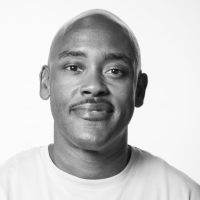
Born in Athens, GA (1979) and raised in Jacksonville, FL, Otha Davis III (also known as Vakseen) is a self-taught, museum-exhibited artist and a multi-platinum music executive, producer & songwriter. While working on hit records has played a driving force in his career, Vakseen has been an active realist painter since moving to Los Angeles in 2011. Known for his Vanity Pop, collage-influenced paintings, his artwork has been exhibited by the Ontario Museum of History & Art, Brownsville Museum of Fine Art, Spectrum Miami/Art Basel, Adidas, Vans, BBC World News, HBO’s Insecure, La Luz de Jesus Gallery, Flinders Lane Gallery, Zhou B Art Center, Julien’s Auctions, Gallery 1988, Los Angeles Municipal Art Gallery, the University of California Los Angeles, Bombay Saaphire Gin, the city of Los Angeles, Gallery 825, Abend Gallery, Baton Rouge Gallery, and Soho House London. His artwork has also been published in various magazines in print and online including American Art Collector, Buzzfeed, Complex Magazine, Juxtapoz Magazine, Hi-Fructose Magazine, LA Weekly, Vibe Magazine, PoetsArtists, Beautiful Bizarre Magazine, Professional Artist Magazine, High Times Magazine, Kolaj Magazine, Gay Times, BOOOOOOOM and Supersonic Art.
To visit his website, click here
.
.
___
.
.
Poets contributing to this collection (listed in the order in which their poems appeared)
.
.
Michael L. Newell lives in Florida. He has two recent books of poetry available through Amazon and Barnes and Noble: Wandering, and Each Step a Discovery, both books published by Cyberwit.net Press.
.
.
___
.
.

Joe Stellin Jr. lives in Santa Clarita CA and writes what some people call “Horror Poetry.” He has been published in the local Signal newspaper numerous times, and his works are included in five Anthologies presented by The Golden Pen Writer’s Guild. Joe is working on publishing a book of his own in the near future.
.
.
___
.
.

Susie Gharib is a graduate of the University of Strathclyde with a Ph.D. in English on the work of D.H. Lawrence. Her poetry and fiction have appeared in Adelaide Literary Magazine, the Pennsylvania Literary Journal, Mad Swirl, Down in the Dirt, The Ink Pantry, Impspired Magazine, A New Ulster, Westward Quarterly, Miller’s Pond Poetry Magazine, The Opiate, Penwood review, Crossways, Amethyst Review, Synchronized Chaos, Pinyon Review, Leaves of Ink, Peacock Journal, The Blotter, and many others.
.
.
___
.
.

Aurora M. Lewis.is a retiree having worked in finance for 40 years. In her fifties, she received a Certificate in Creative Writing-General Studies, with Honors from UCLA. Aurora’s recent poems, short stories, and nonfiction have been accepted by The Literary Hatchet, Jerry Jazz Musician, The Blue Nib, Trembling in Fear, Jitter Press, Scary Snippets, Copperfield Review to name only a few.
.
.
___
.
.
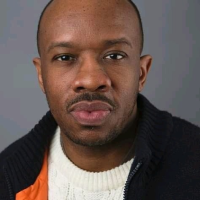
Christopher D. Sims is a writer of poetry, a spoken word artist, and a human rights activist who uses words to inform. Born and raised on the west side of Rockford, Illinois, he has been writing since he was nine years old. A published poet, Christopher wrote a poetry and memoir collection entitled I was Born and Raised in The Rock in 2020. He is a fellow of the Intercultural Leadership Institute.
.
.
___
.
.

Social issues are a major focus of Milwaukee poet Phyllis Wax. Her poetry has appeared previously in Jerry Jazz Musician and in many other journals and anthologies online and in print. A Best of the Net and Pushcart Prize nominee, she has read in coffee houses, bars, libraries and on the radio. She can be reached via email at [email protected].
.
.
___
.
.
Michael Yellin lives in Merrimack, NH with his fabulous wife, two beautiful daughters, and a little black dog. A relic who is not on Facebook and who still collects CDs, Michael teaches composition at Franklin Pierce University and St. Anselm College. He holds a Ph.D in English from Lehigh University.
.
.
___
.
.

Born in Norman, Oklahoma, Carrie Magness Radna is an audiovisual cataloger at the New York Public Library, a choral singer and a poet who loves traveling. Her poems have previously appeared in The Oracular Tree, Muddy River Poetry Review, Poetry Super Highway, Walt’s Corner, Alien Buddha Press, Cajun Mutt Press and First Literary Review-East. Her upcoming poetry collection, In the blue hour (Nirala Publications) will be published in Fall 2020.
Visit her blog by clicking here
.
.
___
.
.

Robert O. Harris, Jr. teaches at the University of North Texas at Dallas. His recent poetry has appeared in Space and Time and Jerry Jazz Musician. His commentary about unpublished poetry of Tennessee Williams has appeared in The Southwest Review. He curated the national “Walt Whitman at 200 Exhibition” for which he wrote All Goes Onward and Outward published by The De Golyer at Southern Methodist University.
.
.
___
.
.
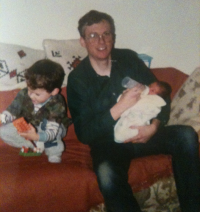
John Stupp’s third poetry collection Pawleys Island was published in 2017. His manuscript Summer Job won the 2017 Cathy Smith Bowers Poetry Prize and was published in August 2018. A chapbook entitled When Billy Conn Fought Fritzie Zivic was published by Red Flag Poetry in January, 2020. (From 1975-1985 he worked professionally as a mediocre jazz guitarist). He lives near Pittsburgh, Pennsylvania and can be reached via email at [email protected].
.
.
___
.
.
.
photo by Cheryl Pyle
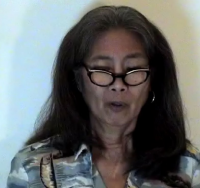
Susan Yung…Domestic–violence; misogynist–hater; anti–racist; democractic–anarchist; ghettoe–girl; Chinatown–Harlem; East Village–West Village; homesteader–gentrifier; yuppie–squatter; homeless–sheltered; American–Asian; World–Traveler; Adventress–Common–Law–Wife; Photographer–Videographer; Martial–Fine–Artist; Musician–Drummer; Artist–Scientist; Geologist–Librarian; Mathematician–Designer; Collector–Exhibitionist; Buyer–Seller; Cook–Politician; Migrant–worker; Independent–Dependent; Pacifist–Activist.
.
.
___
.
.

Russell Dupont is an artist and an author whose artwork is included in a number of public and private collections. He has published two novels, King & Train and Waiting for the Turk; two books of poetry; and two non-fiction chapbooks. His essay, “The Corner,” is included in the anthology Streets of Echoes. His work has been published in various newspapers and literary magazines. He was the founder & publisher of the literary magazine,.the albatross.
Visit his website by clicking here
.
.
___
.
.

Alan Yount, 72, has published poetry for over 50 years. His poems have appeared in WestWard Quarterly (featured poet for summer, 2018). Big Scream, Spring: the Journal of the E.E. Cummings Society, and Waterways.
He has been in three anthologies: Passionate Hearts, Sunflowers.and Locomotives: Songs for Allen Ginsburg. Alan was one of 31 poets, along with Gary Snyder and Lawrence Ferlinghetti. Also Chrysalis Reader.
Alan plays trumpet and has led his own dance band.
.
.
___
.
.
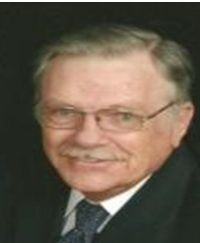
Dr. Emory D. Jones is a retired English teacher who has taught in high school and in several community colleges. He has four hundred and twenty-eight credits including publication in such journals American Poetry, Belle Rêve Review, The Cumberland River Review, and Encore: Journal of the NFSPS. He is retired and lives in Iuka, Mississippi.
.
.
___
.
.
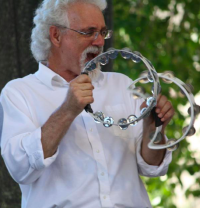
Bob.Walters.grew up in the bayou country of East Texas. After graduating from West Virginia University, he has spent the last few decades teaching Literature, Writing, and Creative Writing in Asheville, NC, where life is good and music is wonderful. He also plays drums in a blues and soul band, writes fiction and poetry, and paints to calm a restless spirit. He is married to his favorite person, and they have three large sons.
.
.
___
.
.

Patricia Carragon’s poem “Paris the Beautiful” won Poem of the Week from great weather for MEDIA. Her fiction piece “What Has to Happen Next” is nominated for Sundress Publications Annual Best of the Net Anthology. Her latest book from Poets Wear Prada is Meowku. Her debut novel, Angel Fire, is forthcoming from Alien Buddha Press this October. Patricia hosts Brownstone Poets and is the editor-in-chief of its annual anthology. She lives in Brooklyn, NY.
.
.
___
.
.
photo by Mya Smbg
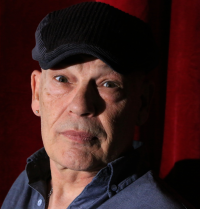
Moe Seager is a poet and jazz & blues vocalist who sings his poems on stages in Paris, New York and elsewhere and has recorded two jazz-poetry CD’s. Seager founded and hosts “Angora Poets World Caffé,” in Paris, and now hosts the event on Zoom. He also hosts “100 Thousand Poets for Change,” Paris and is one of the coordinators for le Fédération des Poètes, Paris. He has six collections of poetry and currently publishes with Onslaught press, Oxford, U.K. Other poetry collections include Dream Bearers (1990); One World, (2004); We Want Everything in French translation (1994); Perhaps (2006); Fishermen and Pool Sharks Busking (1992). Additionally Seager won a Golden Quill Award (USA) for investigative journalism, 1989 and received an International Human Rights award from the Zepp foundation, 1990. Two collections, We Want Everything and I Wanna Make Jazz To You, Onslaught press, are available from Amazon.com
.
.
___
.
.
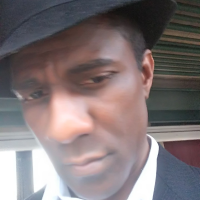
Prince A. McNally is a Brooklyn-born poet, writer, essayist and philosopher whose work has appeared and is forthcoming in numerous literary magazines, journals and anthologies throughout the U.S. and abroad. He is currently working on his first collection of poetry as well as a book of philosophy due out in 2021. To view more of Prince’s work, feel free to follow him on FB Prince A. McNally, Instagram @prince_thepoet, Twitter @princeamcnally. You may contact him via email [email protected].
.
.
___
.
.

DH Jenkins worked as an associate professor of English/Speech for the Univ. of Maryland in Japan and Korea for many years. His jazz play, Ti Jean, about Jack Kerouac, has been staged in Tucson, AZ and in St. Joseph, MO. Thirteen of his poems are set to music in the film Call From a Distant Shore, a collaboration with musician/artist Bill Scholer, June 2020.
.
.
___
.
.
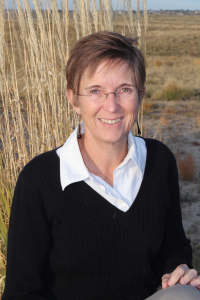
Susan Delaney Spear is an Associate Professor of English at Colorado Christian University. Her collection Beyond All Bearing was published by Wipf and Stock in 2018, and a creative writing/ poetry textbook (with David J. Rothman) is forthcoming from Springer International in Fall of 2020. She can be reached via email at [email protected]
.
.
___
.
.
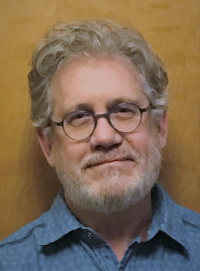
D.R. James’s latest of nine collections are Flip Requiem (Dos Madres, 2020), Surreal Expulsion (Poetry Box, 2019), and If god were gentle (Dos Madres, 2017), and his micro-chapbook All Her Jazz is free, fun, and printable-for-folding at Origami Poems Project. He lives in the woods near Saugatuck, Michigan.
Visit his Amazon author page by clicking here
.
.
.
___
.
.
.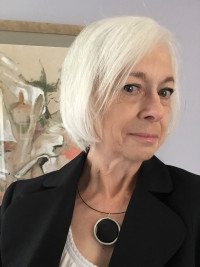
Diane Elayne Dees’s poetry has been published in many journals and anthologies. Her chapbook, Coronary Truth, is available from Kelsay Books, and another chapbook, I Can’t Recall Exactly When I Died, is forthcoming. Diane, who lives in Covington, Louisiana, also publishes Women Who Serve, a blog that delivers news and commentary on women’s professional tennis throughout the world. Her author site is Diane Elayne Dees: Poet and Writer-at-Large.
.
.
___
.
.
.

John Kendall Hawkins is an American freelance writer currently residing in Australia. His poetry, commentary and reviews have appeared in publications in Oceania, Europe, and the US. He is a regular contributor to Counterpunch magazine. He is a former winner of the Academy of American Poets prize. He’s working on a novel.
.
.
___
.
.
Terrance Underwood is a retired Rolls-Royce Service Engineer, veteran, College Grad (B.A. History) who has been listening to recorded jazz music since he was 5-6 yrs old. One of his first memories is listening to a 78 version of “Cherokee” by Charlie Barnett.
.
.
___
.
.
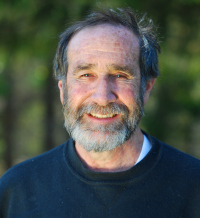 .
.
Joel Glickman taught music including jazz history and the jazz band at Northland College, Ashland Wisconsin, from 1974 until retirement in 2017, where he has resumed teaching about jazz again, part time. He has written and published poetry over a wide range of subjects. Primarily a classical clarinetist and folk singer-song writer and banjo player, his jazz and saxophone skills lag behind these. He resides in Ashland with wife Susan and their Bichon, Madeline.
He can be reached via email at [email protected]
.
.
___
.
.

.
Susandale’s poems and fiction are on WestWard Quarterly, Mad Swirl, Penman Review, The Voices Project, and Jerry Jazz Musician. In 2007, she won the grand prize for poetry from Oneswan. The Spaces Among Spaces from languageandculture.org has been on the Internet. Bending the Spaces of Time from Barometric Pressure is on the Internet now.
You can reach her by email at [email protected]
.
.
___
.
.

.
R. Bremner has been writing since the 1960’s. He appeared in 1979’s first issue of Passaic Review, along with Allen Ginsberg and Rich Quatrone. International Poetry Review, Oleander Review, Paterson Literary Review, Red Wheelbarrow, and.Shot Glass Journal.are a few of the journals he has been in. Ron has won Honorable Mention in the Allen Ginsberg Awards, and has published six print books, including.Ektomorphic(Presa Press), and thirteen eBooks.
.
.
___
.
.
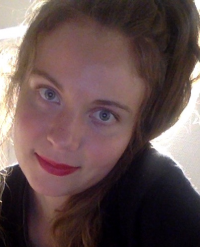
After having completed her first years of Masters in American Literature at la Sorbonne and her second year of Masters at New York University, Claire Andreani started writing poetry, focusing her work on Emily Dickinson, E. E Cummings and Wallace Stevens. She is currently working on a collection of poetry called the city, exploring the absurdities and transformations imposed by Modern Society: how city life reflects in Human Nature and changes it.
She can be reached via email at [email protected]
.
.
___
.
.
Ed Werstein, Milwaukee, is a Regional VP of the Wisconsin Fellowship of Poets and represents that group on the Wisconsin Poet laureate Commission. In 2018 he received the Lorine Niedecker Award (judged by Nickole Brown) from the Council for Wisconsin Writers.
Reach him via email at [email protected]
.
.
___
.
.

.
John Jack Jackie (Edward) Cooper is the creator of These Are Aphorithms, author of Ten (Poets Wear Prada, 2012) and Ten … more (Poets Wear Prada, 2016). His American English translation of Wax Women, with French texts of the original poems by Jean-Pierre Lemesle and photographs by Henry Jacobs (International Art Office: Paris, 1985), drew acclaim and dedicated full-window display from the Gotham Book Mart in New York — legendary fishing hole to the “wise” — released in the United States the following year. His work has appeared in Brownstone Poets 2013; The Venetian Hour, Dinner with the Muse, Part II; CLWR 49, CLWR 50, Guinevere Review, and the Unbearables AnthologySomewhere to Nowhere: The End of the American Dream(Autonomatia, 2017); online, at exitstrata.com, in the Sweet Tree Review, .Rat’s Ass Review, and Anti-Heroin Chic; forthcoming, in “The Bug Book” (Poets Wear Prada, 2019). Editor and co-publisher of Poets Wear Prada, a small press based in Hoboken, New Jersey, he graduated from the University of Pennsylvania. His whereabouts have been numerous, like his names, but, unlike them, currently unknown.
.
.
___
.
.
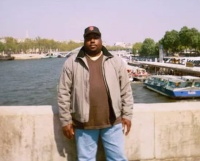
Erren Kelly is a two-time Pushcart nominated poet from Boston whose work has appeared in 300 publications (print and online), including Hiram Poetry Review, Mudfish, Poetry Magazine, Ceremony, Cacti Fur, Bitterzoet, Cactus Heart, Similar Peaks, Gloom Cupboard, .and .Poetry Salzburg.
.
.
___
.
.
 Jay Franzel lives in Wayne, ME, recently retired after working with at-risk youth for over 30 years. He has published poems in numerous journals and anthologies and received poetry grants from the Maine Arts Commission and St Botolph’s Foundation. He is the organizer of The Bookey Readings, a spoken-word series at the Harlow Gallery in Hallowell, Maine.
Jay Franzel lives in Wayne, ME, recently retired after working with at-risk youth for over 30 years. He has published poems in numerous journals and anthologies and received poetry grants from the Maine Arts Commission and St Botolph’s Foundation. He is the organizer of The Bookey Readings, a spoken-word series at the Harlow Gallery in Hallowell, Maine.
.
.
.
Click here to read “A Collection of Jazz Poetry — Spring, 2020 edition
Click here to read “A Collection of Jazz Poetry — Summer, 2020 edition
Click here for information about how to submit work for consideration
..
.
.




























